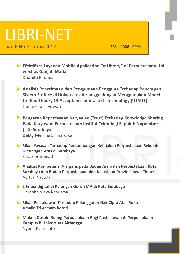Dental Journal (Majalah Kedokteran Gigi)
ISSN 1978-3728
Vol. 44 / No. 4 / Published : 2011-12
Order : 2, and page :173 - 176
Related with : Scholar Yahoo! Bing
Original Article :
In vivo characterization of polymer based dental cements
Author :
- Widiyanti P *1
- Siswanto*2
- Department of Physics, Faculty of Science and Technology, Airlangga University Airlangga University Surabaya - Indonesia
- Institute of Tropical Disease, Airlangga University Surabaya - Indonesia
Abstract :
Background: In vivo studies investigating the characterization of dental cements have been demonstrated. As few in vitro studies on this cement system have been performed. Previous researches in dental material has been standardized dental cement which fulfilled the physical and mechanical characteristic such as shear strength but were on in vitro condition, the animal model and clinical study of dental cement from laboratory has not been done yet. This research examined physical and mechanical characteristic in vivo using rabbit by making the caries (class III) in anterior teeth especially in mesial or distal incisive, fulfilled the cavity by dental cement and analyzed the compressive strength, tensile strength, and microstructure using scanning electron microscope (SEM). Purpose: This study is aimed to describe the in vivo characterization of dental cements based on polymer (zinc phosphate cement, polycarboxylate, glass ionomer cement and zinc oxide eugenol). Methods: First, preparation was done on animal model’s teeth (6 rabbits, male, 5 months old). The cavity was made which involved the dentin. Then the cavity was filled with dental cement. After the filling procedure, the animal model should be kept until 21 days and than the compressive test, tensile test and microstructure was characterized. Compressive test and tensile test was analyzed using samples from extracted tooth and was measured with autograph. The microstructure test was measured using SEM. Results: The best compressive strength value was belongs to zinc phosphate cement which was 101.888 Mpa and the best tensile strength value was belongs to glass ionomer cement which was 6.555 Mpa. Conclusion: In conclusion, comparing with 3 others type of dental cements which are zinc phosphate, polycarboxylate and glass ionomer cement, zinc oxide eugenol cement has the worst for both physical and mechanical properties.
Keyword :
Zinc phosphate cement, polycarboxylate cement, glass ionomer cement, zinc oxide eugenol in vivo, characterization,
References :
Combe E,(1999) Dental biomaterials. London : Springer
Archive Article
| Cover Media | Content |
|---|---|
 Volume : 44 / No. : 4 / Pub. : 2011-12 |
|













